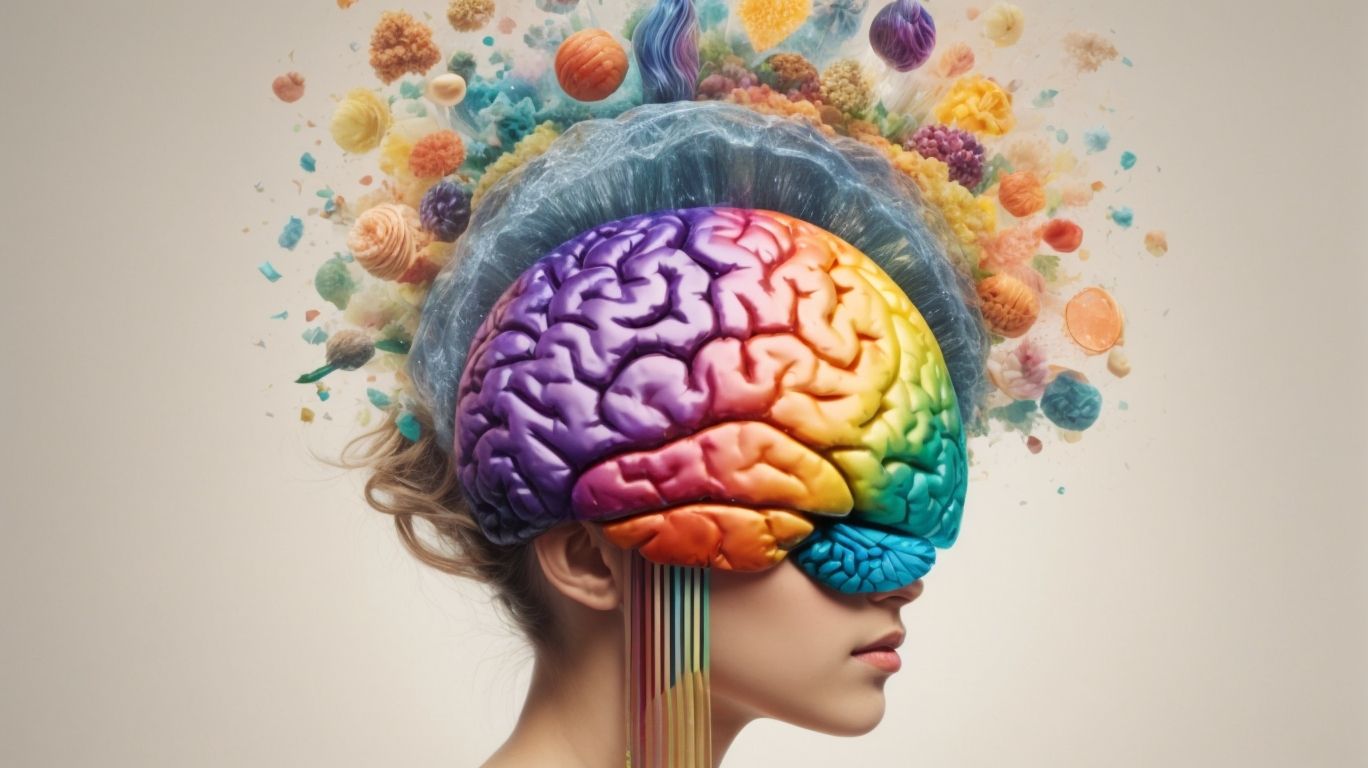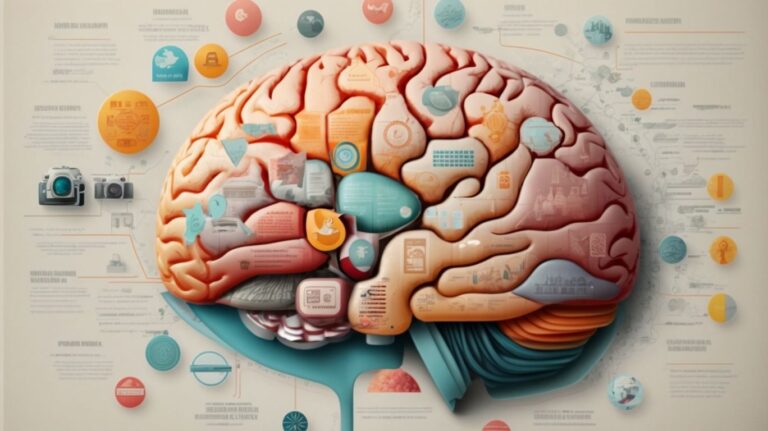Have you ever wondered how and why people change over time? Developmental psychology seeks to answer these questions by studying the psychological growth and development of individuals from infancy to adulthood.
Understanding human development is crucial for improving parenting and caregiving, identifying and addressing developmental delays, enhancing education and learning, and informing public policies.
This article will explore the key theories, stages of development, and the impact of developmental psychology on our lives. So, let’s dive in and learn more about this fascinating field!
Contents
- 1 Key Takeaways:
- 2 What Is Developmental Psychology?
- 3 Why Is It Important to Study Developmental Psychology?
- 4 How Does Developmental Psychology Impact Our Lives?
- 5 What Are the Key Theories in Developmental Psychology?
- 6 What Are the Stages of Development in Developmental Psychology?
- 7 Frequently Asked Questions
- 7.1 What is developmental psychology and why is it important to study?
- 7.2 How does studying developmental psychology benefit individuals?
- 7.3 What are some practical applications of studying developmental psychology?
- 7.4 How does studying developmental psychology benefit society as a whole?
- 7.5 Why is it important for parents to have knowledge of developmental psychology?
- 7.6 How does studying developmental psychology impact other fields of psychology?
Key Takeaways:
- Understanding human development is crucial in comprehending behaviors and navigating relationships throughout our lives.
- Studying developmental psychology can improve parenting, caregiving, and identify and address developmental delays.
- The key theories and stages of development in developmental psychology provide a framework for understanding and influencing human growth and behavior.
What Is Developmental Psychology?
Developmental psychology is the scientific study of how and why human beings change over the course of their life.
Developmental psychology focuses on analyzing biological, emotional, cognitive, and social development from infancy through old age. Researchers in this field explore the factors influencing growth and change, such as genetics, environment, and social relationships.
They study various stages and critical periods, such as infancy, childhood, adolescence, and adulthood, to better understand individual differences and common patterns in human development.
The research in this field often utilizes longitudinal studies, observation, controlled experiments, and interviews to gather empirical data. This comprehensive approach aids in formulating developmental theories and contributes valuable insights to education, parenting, and clinical practice.
Why Is It Important to Study Developmental Psychology?
Studying developmental psychology is crucial for gaining an in-depth understanding of human growth and behavior, which holds significant implications for various career paths and personal development.
Understanding how individuals develop physically, cognitively, and emotionally can offer valuable insights into career choices, as it provides a deeper understanding of human interactions, motivations, and cognitive processes.
Developmental psychology equips individuals with the knowledge to work effectively in fields such as education, counseling, social work, and healthcare, where understanding human development is paramount.
The study of developmental psychology fosters personal growth by enhancing self-awareness, empathy, and interpersonal skills, enriching individuals’ abilities to navigate diverse social and professional environments.
How Does Developmental Psychology Impact Our Lives?
Developmental psychology profoundly impacts our lives by offering insights into the lifespan development of individuals, influencing how we learn, interact, and grow.
It helps us understand how children, adolescents, and adults evolve physically, mentally, and emotionally.
Understanding the influential factors in each stage allows educators to tailor teaching methods to different developmental stages, optimizing learning outcomes.
It sheds light on the significance of social interactions in shaping personalities and building relationships.
It enables individuals to comprehend their own growth, facilitating self-awareness and personal development.
Understanding Human Development
A comprehensive understanding of human development includes cognitive, social, and emotional aspects, which forms the core focus of developmental psychology.
Each dimension plays an integral role in shaping an individual’s growth.
The cognitive aspect involves mental processes such as learning, memory, problem-solving, and decision-making, which are crucial for intellectual development.
On the social front, interactions with family, peers, and society significantly impact one’s behavior, values, and relationships.
The emotional aspect encompasses understanding and managing emotions, forming attachments, and developing empathy and resilience.
Improving Parenting and Caregiving
Developmental psychology contributes to enhancing parenting and caregiving by providing valuable insights and evidence-based techniques, such as attachment theory and parenting classes.
Understanding the intricacies of child development helps parents and caregivers to adapt their approach accordingly. Attachment theory, for example, emphasizes the importance of forming secure emotional bonds with children, which in turn fosters healthy development.
Parenting classes offer practical guidance on effective communication, discipline strategies, and managing emotional wellbeing.
Identifying and Addressing Developmental Delays
Developmental psychology plays a crucial role in identifying and addressing developmental delays through the application of specialized techniques and interventions.
Childhood development can be better understood by identifying common stages and being aware of potential warning signs. This allows developmental psychology professionals to intervene early and provide support for children’s optimal growth.
Assessments may be conducted to evaluate cognitive, social, emotional, and behavioral development, leading to personalized interventions. These interventions can include play therapy or behavior modification techniques to promote healthy growth and address any concerns.
Enhancing Education and Learning
Developmental psychology contributes to enhancing education and learning by advocating for evidence-based practices such as play therapy and social skills training.
Through the lens of developmental psychology, educators are able to gain valuable insights into the cognitive, emotional, and social development of children. This allows them to tailor their teaching methods to suit the specific needs of their students.
The principles of play therapy not only foster creativity and imagination, but also aid in the holistic development of a child. This approach addresses emotional struggles and provides a safe space for expression and healing.
Social skills training equips students with the necessary tools to navigate social interactions, build meaningful relationships, and enhance their overall well-being. This ultimately contributes to a positive learning environment.
Informing Public Policies
Developmental psychology informs the creation of public policies by providing a deeper understanding of individuals’ developmental needs and challenges.
This field of psychology delves into the cognitive, emotional, and social aspects of human development, shedding light on the critical periods and factors that shape individuals from infancy to adulthood.
By uncovering the intricate interplay of genetics, environment, and social interactions, developmental psychology offers valuable insights into the disparities and vulnerabilities faced by different groups, highlighting the need for targeted interventions and support systems.
What Are the Key Theories in Developmental Psychology?
Several key theories in developmental psychology, such as cognitive development and psychosocial development, provide frameworks for understanding human growth and behavior.
Cognitive development theory, proposed by Jean Piaget, focuses on the ways in which individuals acquire and utilize knowledge as they grow. It emphasizes the importance of mental processes, such as memory, problem-solving, and language acquisition, in shaping a person’s understanding of the world.
On the other hand, psychosocial development theory, introduced by Erik Erikson, explores the influence of social and emotional factors on human growth.
It outlines a series of stages, each associated with a unique psychosocial crisis that individuals must navigate in order to progress successfully through life.
Piaget’s Theory of Cognitive Development
Piaget’s theory of cognitive development outlines the stages through which individuals develop their understanding of the world, providing valuable insights into human cognition.
According to Piaget, cognitive development occurs in four distinct stages: sensorimotor, preoperational, concrete operational, and formal operational.
Sensorimotor stage primarily focuses on infants and their understanding of the world through sensory experiences and motor actions.
Preoperational stage is characterized by symbolic thinking and the use of language, while concrete operational stage involves the development of logical thinking.
The final stage, formal operational, sees the emergence of abstract reasoning and the ability to think hypothetically and critically.
This theory has greatly influenced the field of developmental psychology, providing a framework for understanding how children learn and grow.
It emphasizes the importance of active learning and experience in shaping cognitive development, an idea that has been widely used in educational practices and parenting approaches.
Piaget’s theory continues to be a foundational concept in psychology, shaping our understanding of how individuals perceive, think, and reason as they navigate the world.
Erikson’s theory of psychosocial development delineates the stages of identity formation and social interaction, playing a crucial role in developmental psychology.
Erikson’s theory identifies eight stages, each representing a specific challenge that individuals face at different points in life.
These stages start from infancy and continue through old age, addressing critical questions around trust, autonomy, initiative, industry, identity, intimacy, generativity, and integrity. These stages emphasize the importance of striking a balance between personal needs and societal expectations.
The impact of these stages on identity formation is profound, shaping an individual’s perception of self, relationships, and the world around them.
This theory underscores the interconnectedness of psychological and social factors in shaping human development, highlighting the significance of both internal and external influences.
Vygotsky’s Sociocultural Theory
Vygotsky’s sociocultural theory focuses on the role of social interaction and cultural context in cognitive development, offering significant insights into social learning.
This theory highlights the importance of the environment, as well as the interaction with others, in shaping an individual’s understanding and knowledge acquisition.
Vygotsky emphasized the Zone of Proximal Development, which is the gap between a learner’s current ability and their potential ability when assisted by a more knowledgeable peer or adult.
This concept underscores the impact of social interaction on cognitive growth and signifies the significance of social influences on learning processes.
Bronfenbrenner’s Ecological Systems Theory
Bronfenbrenner’s ecological systems theory examines the influence of different environmental systems on individual development, providing a holistic framework for developmental psychology.
This theory emphasizes the interconnectedness of various environments, from the microsystem of immediate family and peers to the macrosystem of cultural values and societal norms.
It underscores the significance of environmental influence on shaping an individual’s behavior, cognition, and overall development.
This approach in developmental psychology sheds light on how an individual’s interactions and experiences within these environmental systems contribute to their growth and well-being, highlighting the importance of considering the broader context in understanding human development.
Bandura’s Social Learning Theory
Bandura’s social learning theory emphasizes the role of observational learning and modeling in shaping behavior, contributing significantly to developmental psychology.
Bandura’s theory highlights the role of observational learning and imitation in personal development. It explains how individuals learn by observing others and imitating their actions.
This has been particularly significant in understanding how children acquire social and cognitive skills by observing and emulating the behaviors of those around them.
What Are the Stages of Development in Developmental Psychology?
Developmental psychology encompasses various stages of human development, including prenatal development, adolescence, and adulthood, each presenting unique characteristics and challenges.
Prenatal development is a critical stage that begins at conception and continues until birth. It involves rapid physical growth and organ formation, laying the foundation for future development.
Adolescence, often marked by significant hormonal changes, is a period of identity exploration and cognitive development. It brings about increased independence and societal influences.
Adulthood, characterized by stability and personal growth, involves achieving career goals, forming intimate relationships, and contributing to society.
Prenatal Development
Prenatal development represents a critical stage in developmental psychology, encompassing the period before birth and laying the foundation for future growth and behavior.
In prenatal development, the three primary stages – the germinal, embryonic, and fetal stages – are crucial for understanding the formation of the unborn child.
Theoretical frameworks such as attachment theory and socioemotional development provide insight into the psychological and emotional influences on the developing fetus.
Prenatal care and maternal health play pivotal roles in ensuring healthy prenatal development, as it significantly impacts the cognitive, emotional, and physical well-being of the individual throughout their lifespan.
Understanding prenatal development is essential for informing interventions and support in promoting optimal human development.
Infancy and Toddlerhood
Infancy and toddlerhood mark the initial stages of early childhood development, laying the groundwork for fundamental cognitive, social, and emotional milestones.
During infancy, cognitive development is rapid as infants start to grasp and understand the world around them. From learning to recognize faces to making sense of their own movements, infants begin to develop their cognitive abilities.
As they transition into toddlerhood, the development of language and communication skills becomes more prominent, enabling them to express themselves and interact with others. These early stages play a crucial role in the formation of social and emotional foundations.
Infants start forming attachments with their caregivers, laying the groundwork for future relationships, while toddlers navigate their growing independence and sense of self. These experiences contribute significantly to their overall well-being and interpersonal interactions throughout life.
Early Childhood
Early childhood represents a formative stage in cognitive development, characterized by rapid learning, language acquisition, and the emergence of self-awareness.
This stage between infancy and the age of six is crucial in shaping an individual’s cognitive abilities, as it lays the foundation for complex thinking and problem-solving skills.
During this period, children exhibit remarkable plasticity, absorbing information from their environment at a remarkable pace. Their language acquisition during these years is particularly noteworthy, as they rapidly develop the ability to comprehend and produce complex sentences.
The emergence of self-awareness plays a pivotal role in shaping their social and emotional development, as children begin to recognize themselves as individuals with distinct thoughts and feelings.
Middle Childhood
Middle childhood constitutes a period of social and educational development, marked by formal learning experiences and the consolidation of social skills.
During this stage, children typically become more adept at forming complex friendships, navigating social dynamics, and developing empathy, which are critical for their social development.
Further, middle childhood is a pivotal time for educational experiences, where students begin to solidify their literacy and numeracy skills, laying the foundation for their future academic success.
This period also presents an opportunity for young individuals to engage in extracurricular activities, which play a pivotal role in fostering teamwork, leadership, and time management.
Adolescence
Adolescence represents a critical phase of psychosocial development, marked by identity exploration, peer interactions, and the navigation of transitional challenges.
During this stage, individuals undergo profound changes in their cognitive, emotional, and social realms, shaping their sense of self and place in society.
Psychosocial development during adolescence involves managing social relationships, exploring personal values, and establishing an autonomous identity distinct from family influences.
The interactions with peers play a significant role in this process, as adolescents seek validation and acceptance within their social circles, often influencing their self-concept and decision-making.
The cognitive changes underlying this phase enable adolescents to contemplate abstract concepts, ponder future aspirations, and question established norms, fostering their cognitive autonomy and self-reflection.
While these developments are essential for personal growth, they can also present challenges such as peer pressure, identity confusion, and emotional turmoil, which require support and guidance from caregivers and mentors to navigate effectively.
Adulthood
Adulthood encompasses the diverse stages of the lifespan, presenting unique challenges and opportunities for individuals across various personal and career domains.
In developmental psychology, adulthood is often divided into several stages, such as early adulthood, middle adulthood, and late adulthood. Each stage brings its own set of developmental tasks and transitions, shaping individuals’ personal growth and career trajectories.
Personal identity and intimacy are central to early adulthood, while middle adulthood may involve a focus on career consolidation and generativity. In late adulthood, individuals often navigate the challenges of retirement and reflecting on their life’s achievements.
Frequently Asked Questions
What is developmental psychology and why is it important to study?
Developmental psychology is the scientific study of how individuals change and develop over time, from birth to old age. It is important to study because it provides valuable insight into human behavior and development, helping us better understand ourselves and others.
How does studying developmental psychology benefit individuals?
Studying developmental psychology can help individuals gain a deeper understanding of their own development and behavior, leading to personal growth and improved relationships with others. It can also help individuals make informed decisions about their career, parenthood, and other important life choices.
What are some practical applications of studying developmental psychology?
Studying developmental psychology can have practical applications in fields such as education, healthcare, and social work. It can help educators create more effective learning environments, healthcare professionals better understand and treat developmental disorders, and social workers provide more effective interventions for children and families.
How does studying developmental psychology benefit society as a whole?
Studying developmental psychology can lead to a better understanding of societal issues such as poverty, crime, and inequality. It can also inform policy and program development aimed at improving the well-being of individuals and communities.
Why is it important for parents to have knowledge of developmental psychology?
Parents can benefit greatly from having knowledge of developmental psychology as it can help them understand their child’s behavior and development, leading to more effective parenting strategies. It can also help parents identify potential issues and seek appropriate support or intervention if needed.
How does studying developmental psychology impact other fields of psychology?
Developmental psychology has a significant influence on other fields of psychology, such as social, cognitive, and clinical psychology. It provides a foundation for understanding human behavior and development, which is essential for these other fields to effectively study and address psychological issues.




